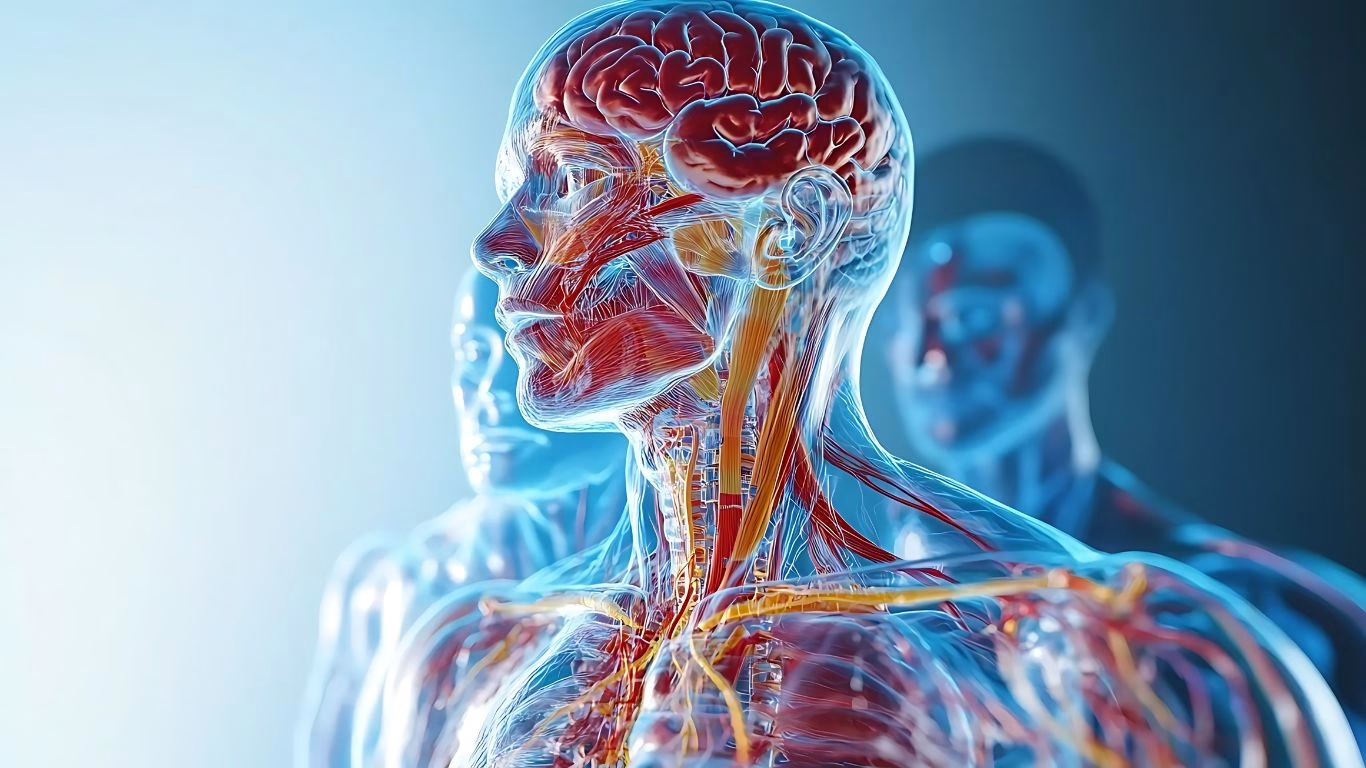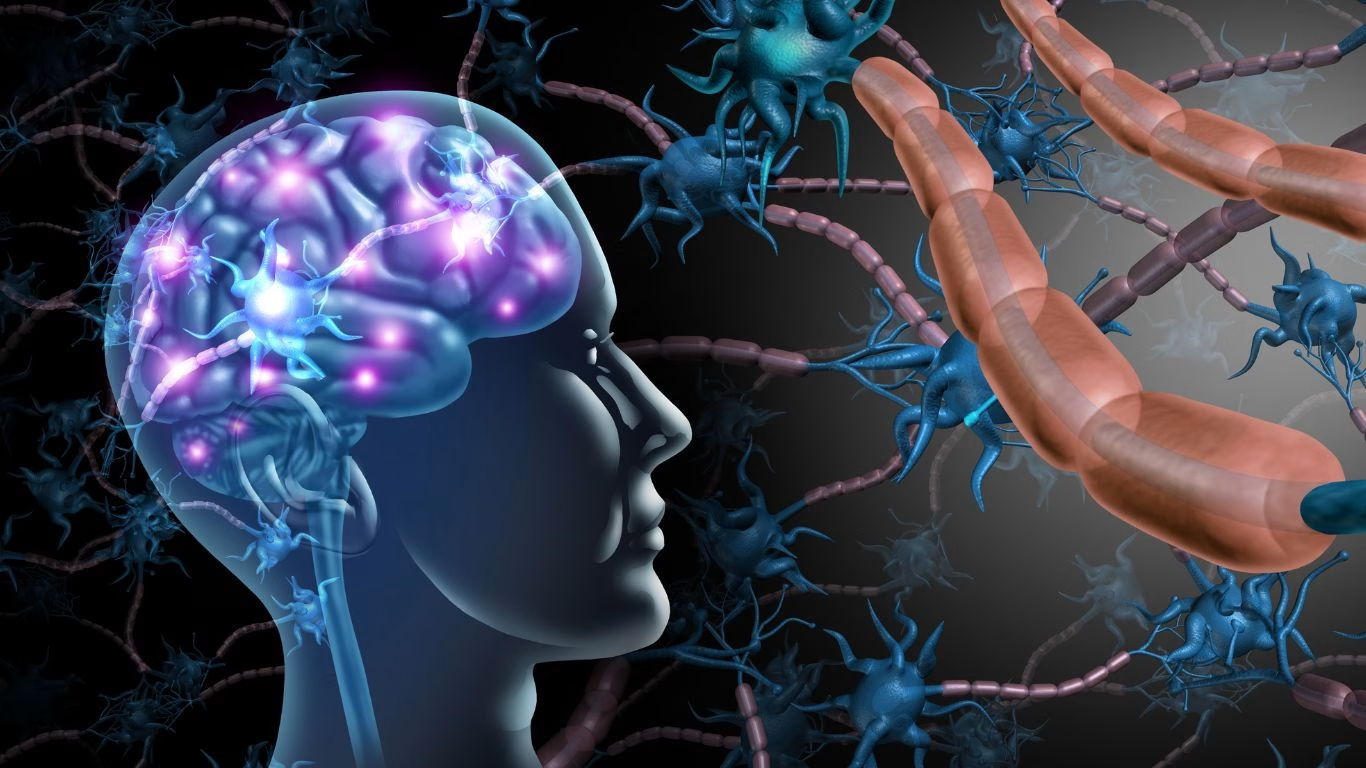We usually think of the brain as the body’s main command centre. But science tells us your gut plays a much bigger role in your overall wellbeing than we once thought. In fact, it’s often called the second brain.
This powerful connection between your digestive system and your brain is known as the brain-gut axis, and it influences everything from how you digest food to how you feel emotionally.
What Is the Brain-Gut Axis?
The brain-gut axis is a complex, two-way communication network between your central nervous system (the brain and spinal cord) and your enteric nervous system (the vast network of neurons in your gut). This system communicates through nerves, hormones, immune responses, and even your microbiome – the trillions of bacteria and microbes living in your digestive tract.
As Johns Hopkins Medicine explains, the gut contains over 100 million nerve cells and operates semi-independently of the brain. This “second brain” plays a direct role in emotional regulation, digestion, and even cognitive function.
Your Microbiome and Mental Health
The gut microbiome doesn’t just help digest food. It also produces key neurotransmitters like serotonin, dopamine, and GABA. These brain chemicals influence everything from mood and sleep to motivation and memory.
In fact, 90 per cent of serotonin is produced in your gut? Cleveland Clinic notes a healthy gut is critical for maintaining emotional balance. An imbalance in gut bacteria (dysbiosis) has been linked to anxiety, depression, and even neurological disorders.
How Stress Affects the Gut and the Brain
Stress doesn’t just live in your head – it impacts your gut, too. When you’re anxious or overwhelmed, your brain sends signals to your gut that can disrupt digestion, cause inflammation, and alter microbial balance.
As Harvard Health explains, this connection works both ways: gut problems can also increase stress and anxiety. That’s why many people with chronic digestive issues like IBS often experience mental health symptoms as well.
Mindfulness and the Brain-Gut Axis
Here’s where it gets empowering: lifestyle practices like mindfulness, meditation, and movement-based therapy can directly support this brain-gut connection.
When we engage in mindfulness – bringing our attention to the present moment – we activate the parasympathetic nervous system, also known as the “rest and digest” system. This slows the stress response, calms the gut, and allows both brain and body to shift into a more balanced state.
According to the NIH’s National Center for Complementary and Integrative Health, mindfulness-based practices can reduce symptoms of anxiety, pain, and gastrointestinal distress. They also help regulate inflammation and promote healthier vagus nerve function, which is a key player in the brain-gut conversation.
Incorporating mindful movement, such as yoga, somatic exercise, or even breath-focused walking, further enhances body awareness and helps support both digestion and emotional regulation.
How to Support Your Brain-Gut Connection
Supporting this connection isn’t just about what you eat, it’s about how you live. Here are a few evidence-backed tips:
- Nourish your microbiome: Include prebiotic-rich foods (like garlic, onions, oats) and fermented foods (like kefir, sauerkraut, or yogurt).
- Limit ultra-processed foods: Highly refined sugar and additives can fuel harmful bacteria.
- Move mindfully: Try practices that combine movement and breath, like tai chi, yoga, or somatic exercises.
- Practice mindfulness: Just 10 minutes a day of meditation or breathwork can improve vagal tone and lower inflammation.
- Prioritise rest: Sleep is critical for microbiome diversity and brain health.
Final Thoughts
Your gut and brain are in constant conversation. When one is out of balance, the other feels it. But the good news is small daily choices – what you eat, how you move, how you manage stress – can dramatically improve this dialogue.
By nurturing your brain-gut connection, you’re not just improving digestion, you’re supporting mental clarity, emotional resilience, and long-term wellbeing.






